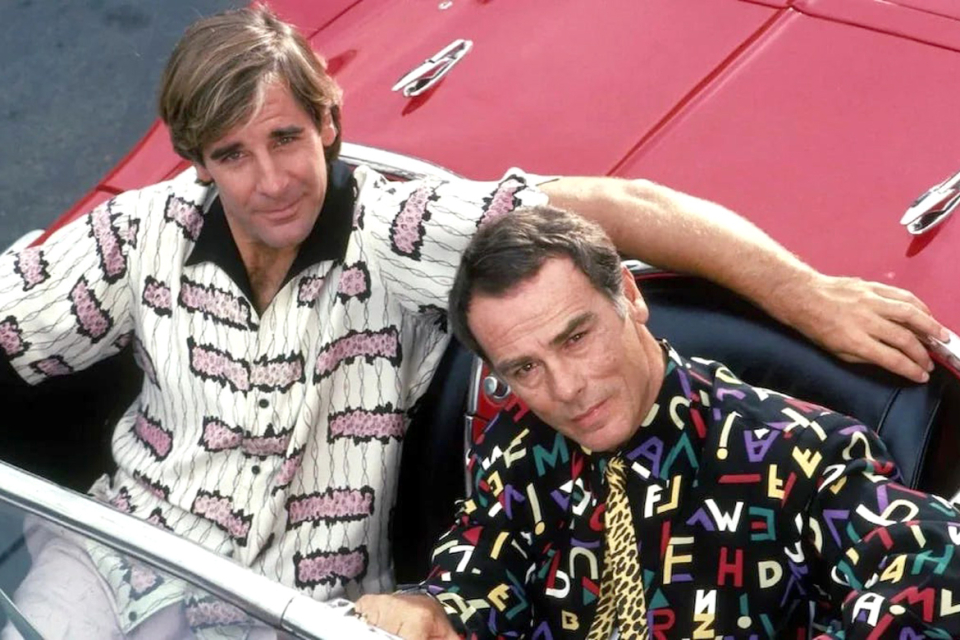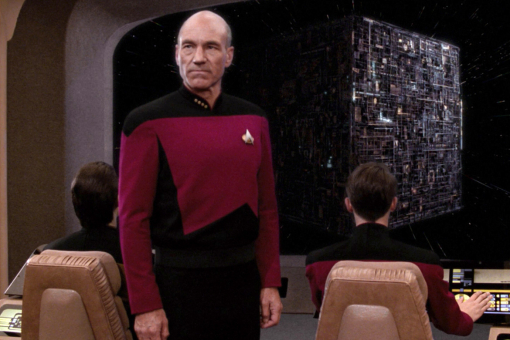"The big excitement of [this] episode was getting to see Dean do his thing."
The episode that Quantum Leap star Scott Bakula refers to is season two’s "M.I.A.," a pivotal, fan-favorite installment that is just as emotional now as it was 35 years ago when it first aired, on May 9, 1990.
The NBC sci-fi drama — which ran for five seasons on the network from 1989 to 1993 — centered on Bakula’s Dr. Sam Beckett, a brilliant, morally-driven scientist who stepped into his mysterious time travel experiment and vanished. From there, Sam leaps into seemingly random people (or, in one case, a chimp), staring down mirror images that were not his own, in an effort to course correct history for the better.
Week to week, to quote the show’s famous opening narration, Sam leaps from life to life, striving to put right what once went wrong, while hoping each time that his next leap will be the leap home. Joining him on this journey is Al (Dean Stockwell), a hologram that only Sam can see and hear, whose mission is to, well, give Sam his. But in "M.I.A.," Al is revealed to be the one whose past needs repair.
WATCH: Quantum Leap Creator Donald P. Bellisario's Three-Hour Foundation Interview
Before Al became a hologram helping Sam break the laws of physics, he was a P.O.W. in Vietnam. He was held captive for so long that his first wife and true love, Beth (Susan Diol), was forced to move on after being told her husband was "missing in action" — hence the episode’s title. centers on Al — and the show — breaking its own rules to use leaping as less of a selfless enterprise and more of a personal tool to, deservedly, let Al have one last moment with his wife in an attempt to change both of their futures by giving each other the one thing Quantum Leap had in spades: Hope.
To celebrate the episode’s 35th anniversary, Bakula takes another trip back in time to the making of "M.I.A.," why showrunner and writer Donald P. Bellisario broke his own show’s rules to write it, why Dean Stockwell didn’t usually like doing the “heavy” emotional stories and how the events of this episode unintentionally impacted the series finale.

Actor Scott Bakula / Photo Credit: JDS
Television Academy: After working in the industry as long as you have, it must be gratifying that, after 35 years, this episode and the show still resonate with audiences.
Scott Bakula: Oh, yeah, I love it. I think the beauty of when you do things that are set in a different time, or era, is that they can have legs. A lot of time travel and science fiction does that. And this [episode] is no exception. It helps that it was a good show, too.
This was one of the first episodes of the show that gives Al the “A” story, with Sam driving the other plotline. I know it’s been 35 years, but do you recall what it was like when you first read this episode and saw that change?
Well, Don wrote it — which was always a big deal. I mean, Don wrote and rewrote a lot of scripts, he always did his [script] polish. But I know this episode was near and dear to his heart because he had that whole backstory for Dean with the Vietnam War and [Al] being missing in action, that was all the military stuff that Don loved to write. Like the [Lee Harvey] Oswald arc we did [in season five]. All the military stuff he loved, he has it in all of his shows, as you know. But I remember getting the script, and we dabbled in some of Al’s backstory. But this story, it was just told so masterfully.
Do you recall how the late Dean Stockwell responded to the script? It gave him the most to play, emotionally, at the time.
Dean basically didn't like to do the serious stuff, sometimes. He had done so much of it as a kid actor, and he just — he loved doing any kind of comedy. Funny bits or storylines he was thrilled about. So when we got these kinds of scripts, he was always a little hesitant in a way.
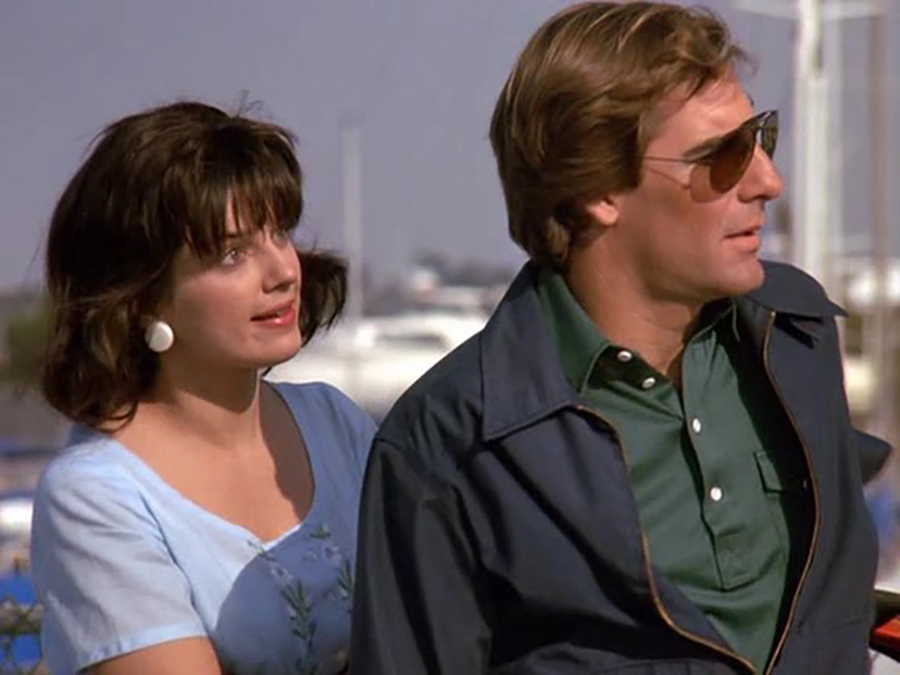 Beth (Susan Diol) and Sam meet for the first time in "M.I.A." / Photo Credit: NBC
Beth (Susan Diol) and Sam meet for the first time in "M.I.A." / Photo Credit: NBC
How so?
He didn’t like to talk about it. He didn't like to spend time rehearsing it — he just wanted to do it.
I think he [rehearsed] it as little as possible so it could be as fresh and real as possible when it came time to shoot. And in "M.I.A.," the episode showcases him so wonderfully because he had to do all the funny stuff with me playing an [undercover] cop in drag — he loved doing all of those scenes together. He had fun. But he gave Al this undercurrent running through the whole episode, starting from the moment he sees Beth’s name on his little hand-held machine that he takes with him on every leap to when he finally gets to have one last dance with her. He was so good, so subtle, with that scene work. The big excitement of that episode was getting to see him do his thing.
[Editor's note: In an April 2008 Foundation Interview, Bellisario echoed and elaborated on Bakula's remarks regarding Stockwell's initial response to the script, saying "When I wrote the script and Dean got it — everybody liked it — [but] Dean came to me, and I expected Dean to say: 'Gee, great script, because it's all about [Al] and I'm going to have a lot of fun doing this.' And he said: 'Why did you do this?! Why did you write this script?' I said, 'Dean, it's a good script.' And he said, 'It's going to cause me a lot of pain to act in this and I don't want to have pain like that anymore in my acting career. I've had enough of it.' And I said, 'Dean, you're going to do this script.' He said, 'I'll do it, but please promise me you will never write anything like this for me again.'"]
What was that experience like for you and the crew, watching him do his thing?
We just always just sat and watched; we were feeling inspired and in such awe. I learned so much working with him and just to see him how he handled these kinds of things. And Susan was just so perfect; she was so lovely.
This episode aired before the movie Ghost came out, but they both employ the song “Unchained Melody” to underscore the tragic romance between two lovers on screen. I mean, Al isn’t a ghost like Patrick Swayze’s character is in the movie, obviously, but he is this sort of spectral hologram.
We had no idea [at the time] the movie and our show were both using that song in similar ways. It was so powerful in that movie.
"M.I.A." really tugs on the heartstrings, with Al having one last dance with his wife to the tune of Ray Charles’s "Georgia."
I'm assuming you've seen it with the original music, with "Georgia" playing, right?
Oh, yeah. I watched it when it originally aired.
Good, yeah, because in the [subsequent] releases that is not the case. They swap out the song in some cases for something else, and it doesn’t — don’t get me started on that one. But that was just a huge mistake that Universal made for money's sake, due to [music] rights issues. And that’s a choice that studios get to make. But oh, my gosh, it breaks my heart every time I see an episode somewhere and all the [original] music is changed.
But anyway, the combination of that music, and Susan and Dean, it was just magical.
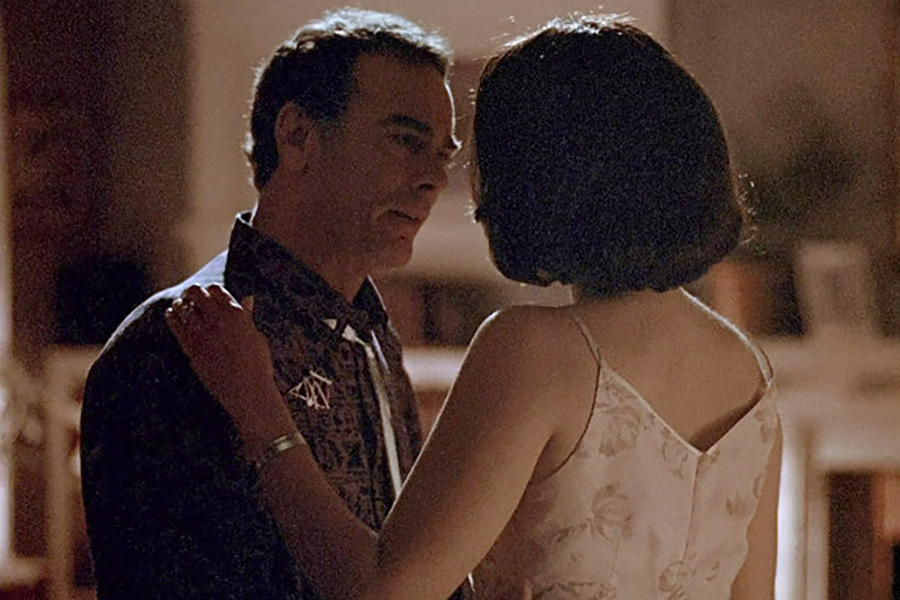 Al (Dean Stockwell) and Beth share a dance in "M.I.A." / Photo Credit: NBC
Al (Dean Stockwell) and Beth share a dance in "M.I.A." / Photo Credit: NBC
And I believe this is the first episode where we stay behind after Sam leaps out. Traditionally, once Sam leaps, Al and the audience go with him.
The beauty of Don was that he wrote all the rules for the show. And then when he needed to break him, he just did — because he could. But having them in the same room, and even staying with Beth after we leap out — which we never did — that was a big thing. I looked at the episode again last night, and I thought, "We never did that." If another writer had pitched that, [Don] probably would have said, "We can't do that."
Micheal Zinberg directed several Leap episodes, including this one. What was your experience like working with him?
He just handled it beautifully. He did a few episodes for us on NCIS, too. But him working with Dean, Dean didn’t hold back. Neither of them did. He was right there, and they committed to it.
And thank goodness, because that was the perfect cap to end it. And then it all pays off in the final episode of the show: You see that picture of Al, that picture changes on the mantle. And he's got his family and his life.
Spoiler alert for a 32-year-old series finale.
[Laughs] Right.
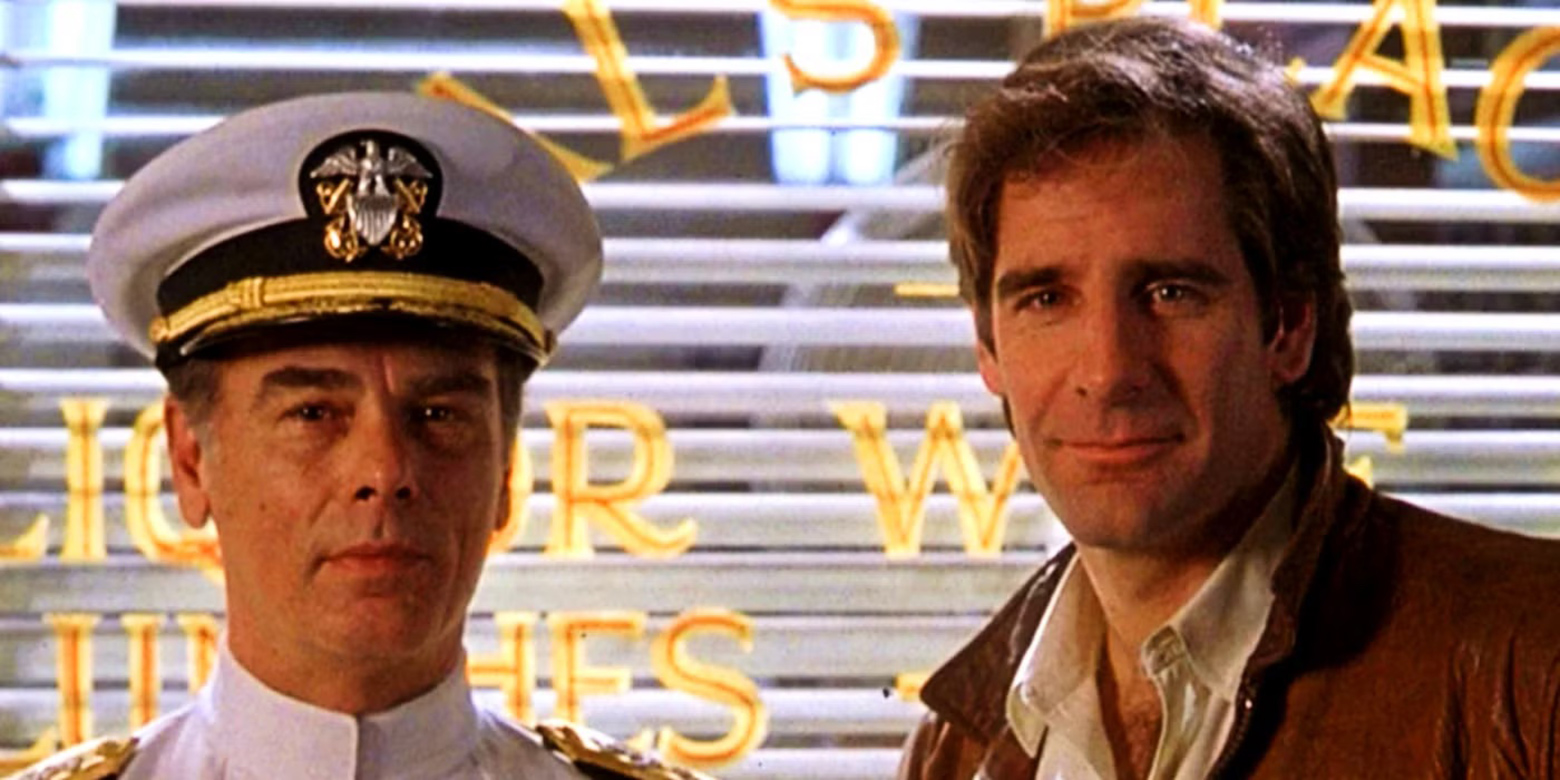 "Mirror Image" signs off the series with Al and Sam / Photo Credit: NBC
"Mirror Image" signs off the series with Al and Sam / Photo Credit: NBC
Since you brought up the finale, I have to ask: Did you or Don know beforehand that the final episode would revisit Al’s arc in "M.I.A.?" Was that part of the series bible or any planning Don may have shared?
Oh, no. We never knew. When we got to the finale — the finale wasn't even the finale.
Meaning you didn’t plan for "Mirror Image" to wrap up the series?
We didn't know we had been canceled, so Don had to wrap up with what he had. We thought there was a possibility we might be canceled, but, no, nothing certain. So I always say, "You take that writing assignment where you have to write an episode like it might be the last episode." But, in our case, the episode also needs to be able to continue the series if it goes on. Also, it has to maybe leave the door open for, say, a two-hour wrap-up movie that we tried to pitch — the kind of thing that’s [happening] now. Or, maybe give us a final [limited] run of episodes, like the final six episodes of whatever it was for The Conners, something like that.
So Don took that task, considering all those aspects, and created the final episode — which had all those potential possibilities [in place] when the episode was over. That's why it was not satisfying to some [fans] that Sam didn't get to leap home and all that stuff. But [Don] had to leave the door open because we hadn't been canceled yet.
So is that why the episode ends with a coda of on-screen text about how Sam never leapt home? Implying he just kept on leaping through time?
Yes. Don and the network had to put something on there, and that’s what we did.
How far did Don get with the story for a potential movie to wrap things up at the time? Did you and he pitch it to NBC?
No, I don't think we ever got that far. It was more like, "Here are the things that could happen." However, if ["Mirror Image"] is the last time we see Sam and Al, what do we want the episode to be? And Don went down that wonderful rabbit hole of bringing these different characters back [in the finale] from previous episodes.
Don also created that bar that was an exact replica of the bar that his dad owned in the hills of Pennsylvania, in the mining town where he grew up. Where he was forced to wear shorts and knee socks to school every day and got the crap beat out of him every day he went to school, because he didn't look like a mining kid. He had original photos and things on the wall [of the bar]. When you look at that episode, everything in there is all original stuff from his family’s artifacts.
This interview has been edited for length and clarity.
Quantum Leap is now streaming on Peacock.



